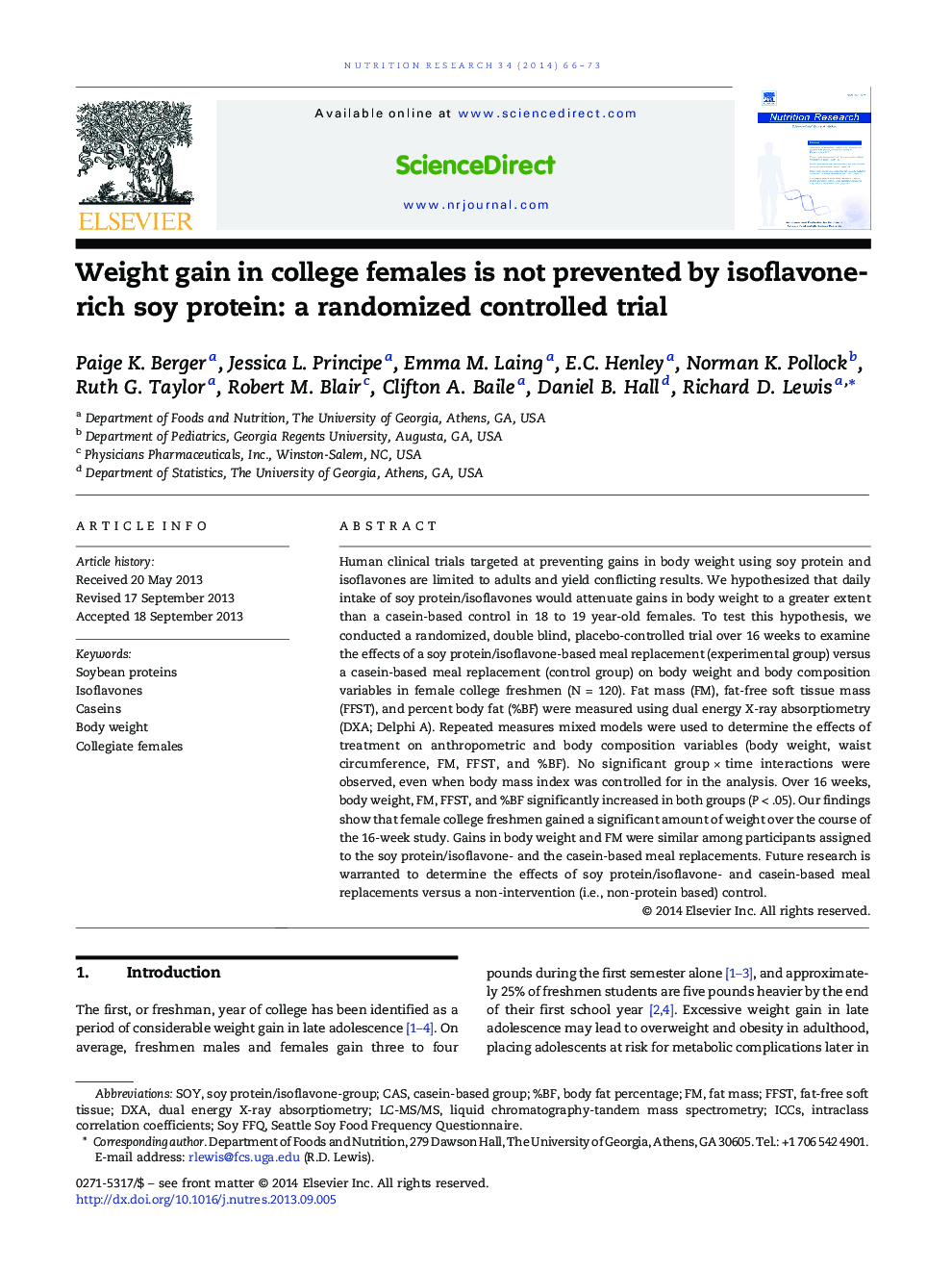| Article ID | Journal | Published Year | Pages | File Type |
|---|---|---|---|---|
| 2809195 | Nutrition Research | 2014 | 8 Pages |
Human clinical trials targeted at preventing gains in body weight using soy protein and isoflavones are limited to adults and yield conflicting results. We hypothesized that daily intake of soy protein/isoflavones would attenuate gains in body weight to a greater extent than a casein-based control in 18 to 19 year-old females. To test this hypothesis, we conducted a randomized, double blind, placebo-controlled trial over 16 weeks to examine the effects of a soy protein/isoflavone-based meal replacement (experimental group) versus a casein-based meal replacement (control group) on body weight and body composition variables in female college freshmen (N = 120). Fat mass (FM), fat-free soft tissue mass (FFST), and percent body fat (%BF) were measured using dual energy X-ray absorptiometry (DXA; Delphi A). Repeated measures mixed models were used to determine the effects of treatment on anthropometric and body composition variables (body weight, waist circumference, FM, FFST, and %BF). No significant group × time interactions were observed, even when body mass index was controlled for in the analysis. Over 16 weeks, body weight, FM, FFST, and %BF significantly increased in both groups (P < .05). Our findings show that female college freshmen gained a significant amount of weight over the course of the 16-week study. Gains in body weight and FM were similar among participants assigned to the soy protein/isoflavone- and the casein-based meal replacements. Future research is warranted to determine the effects of soy protein/isoflavone- and casein-based meal replacements versus a non-intervention (i.e., non-protein based) control.
